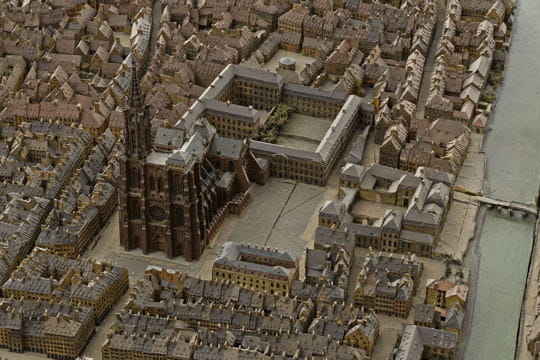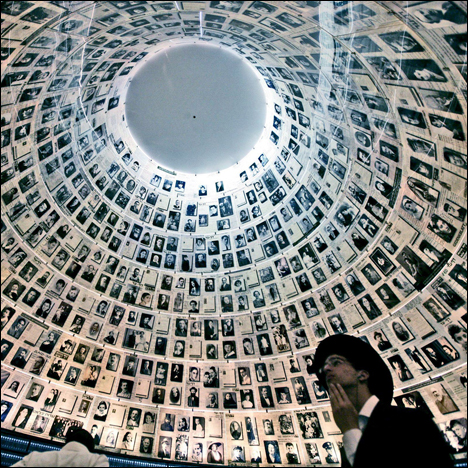The Google Cultural Institute
Once a search engine for the curiously puzzled, the Google of today is not only a superior resource gateway but also a vast and interconnected information hub. When in doubt about your train of thought, just hop on aboard the Google express. Even for doubts verging on the impossible; search for walking directions from the Shire to Mordor on Google Maps and you are admonished that “one does not simply walk into Mordor.” 
The dangers of Sauron aside, today Google can just as easily claim that one does not simply stop googling. It is now a verb, a translation service, a virtual wallet, a communication and storage platform, a social network, and more recently, a cultural institute.
“The Google Cultural Institute helps preserve and promote culture online. With a team of dedicated engineers, Google is building tools that make it simple to tell the stories of our diverse cultural heritage and make them accessible worldwide. We have worked with organisations from across the globe on a variety of projects; presenting thousands of works of art online through the Art Project, digitising the archives of Nelson Mandela and showcasing the Dead Sea Scrolls.”
Of the initiatives of the Google Cultural Institute, the Art Project and the Dead Sea Scrolls have received the most amount of attention. As such, we opted to take a look at some of the other projects that are changing the landscape (quite literally) of online cultural preservation.
Nelson Mandela Digital Archives Project  In 2011, the Nelson Mandela Centre of Memory partnered with Google to digitize and disseminate the archives of Nelson Mandela. The collaboration has resulted in a visually engaging timeline of Nelson Mandela’s life, populated with photographs, diary entries, letters, and excerpts from his autobiography. The site is worth a visit because it both explains and celebrates the enduring legacy of the South African statesman.
In 2011, the Nelson Mandela Centre of Memory partnered with Google to digitize and disseminate the archives of Nelson Mandela. The collaboration has resulted in a visually engaging timeline of Nelson Mandela’s life, populated with photographs, diary entries, letters, and excerpts from his autobiography. The site is worth a visit because it both explains and celebrates the enduring legacy of the South African statesman.
World Wonders Project The World Wonders Project is perhaps the next iteration of the Street View mode in Google Maps. In a partnership with UNESCO, the World Monument Fund, and Getty Images, the project “allows you to navigate virtually around some of the most important, historical and beautiful world heritage sites through panoramic street-level images, experiencing these places almost as if you were there.” The project is an impressive window to the world but is perhaps most suited to educational purposes.
 La France en relief When the Grand Palais in Paris organized an exhibition showcasing 17th and 18th century relief maps of fortified towns in France, Google helped render seven of those models in 3-D. As such, seven fortified towns in France were built anew, in all their artisanal detail, on Google Earth. Furthermore, the reach of the exhibition was no longer limited by the very concept being showcased; geography.
La France en relief When the Grand Palais in Paris organized an exhibition showcasing 17th and 18th century relief maps of fortified towns in France, Google helped render seven of those models in 3-D. As such, seven fortified towns in France were built anew, in all their artisanal detail, on Google Earth. Furthermore, the reach of the exhibition was no longer limited by the very concept being showcased; geography.
La Pavillon de l’Arsenal (Paris Center for Architecture and Urbanism) Just as Google re-envisioned the past at the Grand Palais, at La Pavilon de l’Arsenal, it envisioned the future. Visitors were given a chance to explore the urban landscape of Paris of 2020 through “the first ever 48 screen interactive Liquid Galaxy display, which featured “3D models of the buildings, designed but not yet built, by architects such as Patrick Berger and Jacques Anziutti, Jean Nouvel and Rudy Ricciotti.”
Yad Vashem  Google has helped digitize the vast archives of Yad Vashem, which is “the world center for documentation, research, education and commemoration of the Holocaust.” Through a technique called optical character recognition (OCR), Google has enabled families to search for both documents and images belonging to their relatives. Here is an example given by Google: “To experience the new archive features yourself, try searching for the term [rena weiser], the name of a Jewish refugee. You’ll find a link to a visa issued to her by the Consulate of Chile in France.”
Google has helped digitize the vast archives of Yad Vashem, which is “the world center for documentation, research, education and commemoration of the Holocaust.” Through a technique called optical character recognition (OCR), Google has enabled families to search for both documents and images belonging to their relatives. Here is an example given by Google: “To experience the new archive features yourself, try searching for the term [rena weiser], the name of a Jewish refugee. You’ll find a link to a visa issued to her by the Consulate of Chile in France.”
So there you have it, some of the Google's lesser known projects. Looks like culture is out there, quietly populating the internet. One need only google it.